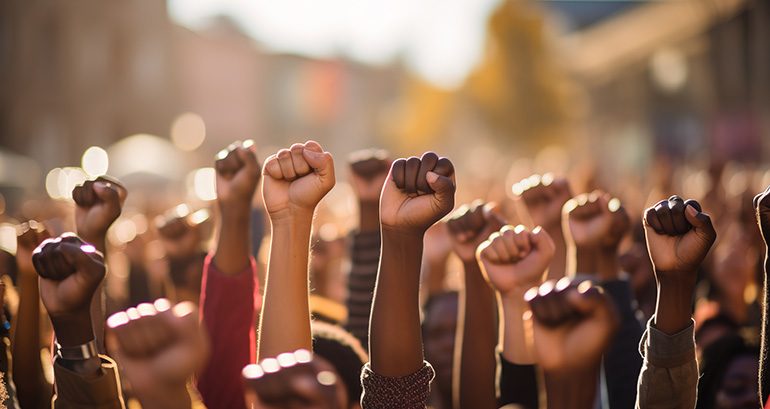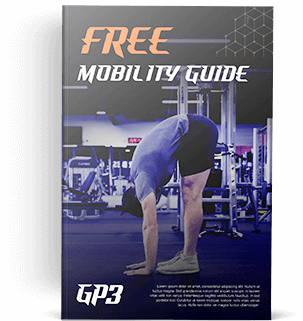Key Points:
- Pride, whether individual or national, often leads to the creation of an identity.
- The consequences of excessive pride are often far less severe on an individual than on a national level, where it can lead to war and even genocide.
- “National gratitude” is a far less destructive concept. It’s much less compatible with violence and still allows us to acknowledge areas our country may need to improve.
Estimated reading time: 5-10 minutes
Listen to this episode on Spotify!
In a recent post about political polarization, I wrote about how the United States’ two major parties tend to hold caricatured views of each other. One item on the fascinating survey conducted by the organization More in Common really stood out to me.
Republican survey participants estimated that only 50% of Democrats would agree with the statement, “Though I acknowledge my country’s flaws, I am proud to be an American.” In reality, over 80% of Democratic survey participants affirmed this.
The “acknowledging my country’s flaws” part got me thinking. Is national pride even something we should strive for?
Hear me out as I make a statement that could be construed as controversial, but shouldn’t be.
I am not proud to be an American, but I am grateful to be one.
Here’s why.
Gratitude is, by nature, far less egoic an experience than pride. It removes the focus from oneself and engenders feelings of togetherness and humility. Pride, by contrast, tends to push our, “I’m superior!” buttons. It can make us view ourselves as “more than” or “better than,” others, which provokes hostility if these others don’t recognize or even (gasp!) doubt our perceived superiority.
On a personal level, pride in something leads to the creation of an identity. “I am good at this,” or “I am better at this than most people,” or, “I deserve this.” When an identity is threatened, we are more likely to lash out in a disproportionately aggressive manner. And as I’ve written before, ultimate freedom to enjoy anything comes from not seeing it as integral to who one is as a person. Then, whatever “the thing” is, it can be enjoyed on its own merits, without needing to be protected by a misplaced sense of defensiveness.
Now, this isn’t to say that pride can’t have some benefits. A certain degree of pride in one’s profession can help lead to high quality work and elevated performance standards. A level of pride in one’s appearance can help with health and hygiene. However, each of these can easily be taken too far. But at the end of the day, too much pride on a personal level is most likely to merely lead to someone acting like a bit of a jerk.
On a national level, however, the consequences of pride are far more severe.
Put simply, refusal of a country to acknowledge another nation’s self-perceived superiority can lead to violence. Clearly, our planet is experiencing a great deal of geopolitical strife at the moment, with national pride playing a large role. However, I want to be clear that I’m not interested in two things. First, I have no desire to “take a side” in any of the ongoing conflicts. But, nor do I have any desire to engage in moral relativism, declaring both sides of China and Taiwan, Russia and Ukraine, or Israel and Palestine equally at fault for the other’s actions.
Instead of drowning in that political quagmire, let’s raise a simple question.
Would any of these conflicts be happening if individuals were incapable of believing the thought, “My country is better than yours?”
I genuinely think not. At the very least, I believe the current conflicts would be far less severe. At the risk of sounding overly simplistic, all of these senseless, violent problems boil down to some version of the following:
- My country is great and worthy of respect.
- It deserves this respect, as well as this particular piece of land.
- Your country doesn’t recognize how much my country deserves these things.
- Worse, your country thinks it deserves them and mine doesn’t!
In its most extreme form, this line of reasoning can be taken as far as, “Your country and/or your people don’t deserve to exist!”
Do you see how destructive national pride can be? Certain religious traditions were probably spot on when they described pride as a “deadly sin.”
Besides, national pride is based on a flawed premise.
“Hang on,” you might be thinking…”Isn’t it good to be proud of where you come from?”
Well, beyond the degree to which pride helps you hold where you came from to high standards, no. First, nobody did anything to deserve to be born in their home country. It was pure chance. Being proud of where you were born is like being proud of winning the lottery. You didn’t have anything to do with it, so what exactly is there to be proud of? Now, it’s perfectly natural to want “the best” for oneself or even to desire to live in the “best country,” but such things would be utterly impossible to determine with any sort of objectivity.
I’m being a little facetious here, but that’s what the Olympics are for. We can get caught up in a month of athletic competition, engaging with national pride in an enjoyable and harmless way. We can channel our inner third-grader, having fun pretending that there’s no higher honor than how fast a person can run, and that the countries with the most proficient athletes are automatically superior. But let’s return to the issue at hand.
Worse than national pride being based on something totally arbitrary (the accident of one’s birth), it can lead to overlooking a country’s flaws or shortcomings. We may refuse to acknowledge when it’s falling short of its own ideals. At the 25:25 mark in this video, a man talks about wanting his children to learn that the worst day in the U.S. is better than the best day in any other country. I don’t think many people actually believe this, as such a viewpoint is both cartoonishly extreme and logically ridiculous, but I felt it worth including.
Why?
Well, we hear endless discussions about patriotism, nationalism, authoritarianism, fascism, and many other -isms relating to a sense of fondness for one’s nation and the preferred form of government. However, in all this rhetoric about national pride, I’ve never once heard the term “national gratitude.” And this has consequences. In places where national pride is strong, criticism can be dismissed by accusing, “Well, you must just hate this country!” But gratitude can allow us to occupy the dissonant headspace of acknowledging where our country can improve while still being thankful for what it has given us.
These don’t have to be mutually exclusive, even if national pride tells us they should be.
For example, I think the United States has a long way to go in addressing inequality in a number of forms, and has done a miserable job in the past 20 years of making sure its citizens are both happy and healthy. But, our conditioning to believe that, “the United States is the best country in the world,” runs so deep that perhaps even by saying this, I’ve struck you as unpatriotic. But it’s not my intention to come across that way.
Despite the problems I see, I feel incredibly thankful to have been born here. I’ve benefited tremendously from growing up in a nation that enjoys the protections of free speech under the law, abundant food and clean drinking water, a strong economy, excellent institutions of higher education, and a culture that encourages innovation and individual expression.
I don’t think I’ve spent quite enough hours in meditation yet to be equally happy in a place where I would need to perform 12 hours of manual labor each day just to scrape enough income together to put food on the table. Maybe someday…
In closing, it’s no secret that the benefits I listed above are not equally available to all Americans. And even many of those who seem to be “doing well” by every available conventional metric are left behind with regards to health and happiness. But gratitude has allowed me to maintain a balanced position. The U.S. isn’t perfect, nor is it even “good” in some aspects. But neither is it an utter disaster that needs to be torn down and rebuilt from scratch. The loudest voices in the vocal minorities on either side of the political spectrum would have us believe their own version of those extreme positions.
But let’s not fall for that. And in the meantime, I’ll start working on rewriting the lyrics to Lee Greenwood’s classic anthem, “I’m glad to be an American.”
Before you go, I’d love to hear from you. What do you think of the concept of “national gratitude.” Did I persuade you that it’s healthier than national pride, or are you still not convinced? Reply to this email and let me know!

